Zootopia (2016)
- nguyentruong
- November 7, 2024
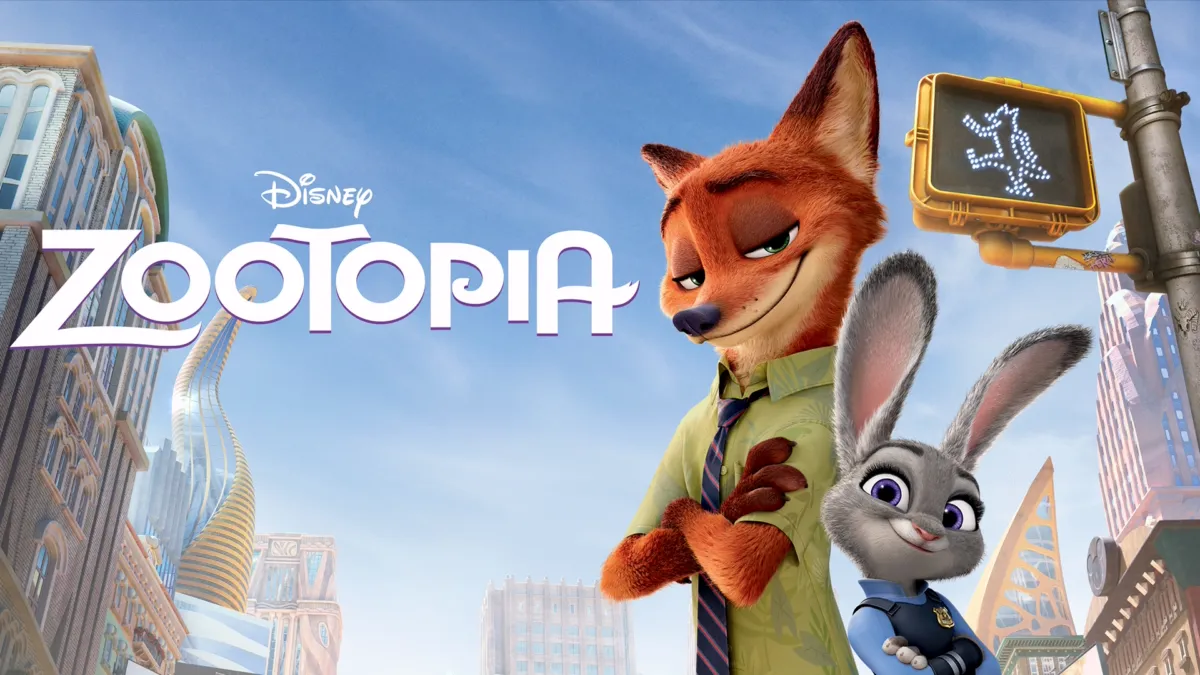
Zootopia (2016), directed by Byron Howard and Rich Moore, is an animated film by Walt Disney Animation Studios that combines adventure, comedy, and mystery to tell a compelling story with a strong social message. Set in the bustling city of Zootopia, a modern animal metropolis where predators and prey live together in harmony, the movie follows the journey of Judy Hopps, an optimistic young rabbit with dreams of becoming the city’s first rabbit police officer. The film explores themes of prejudice, ambition, and acceptance, all while delivering a humorous and heartfelt narrative that resonates with audiences of all ages.
Judy, voiced by Ginnifer Goodwin, is an intelligent and determined character who challenges the expectations of her family and society. Growing up in a rural town of rabbits, she is constantly told that her goal of becoming a police officer is unrealistic for a “small” and “weak” animal like herself. However, Judy’s resilience and desire to make a difference drive her to graduate at the top of her class at the police academy and earn a position in the Zootopia Police Department (ZPD). Her arrival in the city of Zootopia marks the beginning of her journey as she navigates the complexities of a world that, despite its progressive facade, is rife with stereotypes and biases.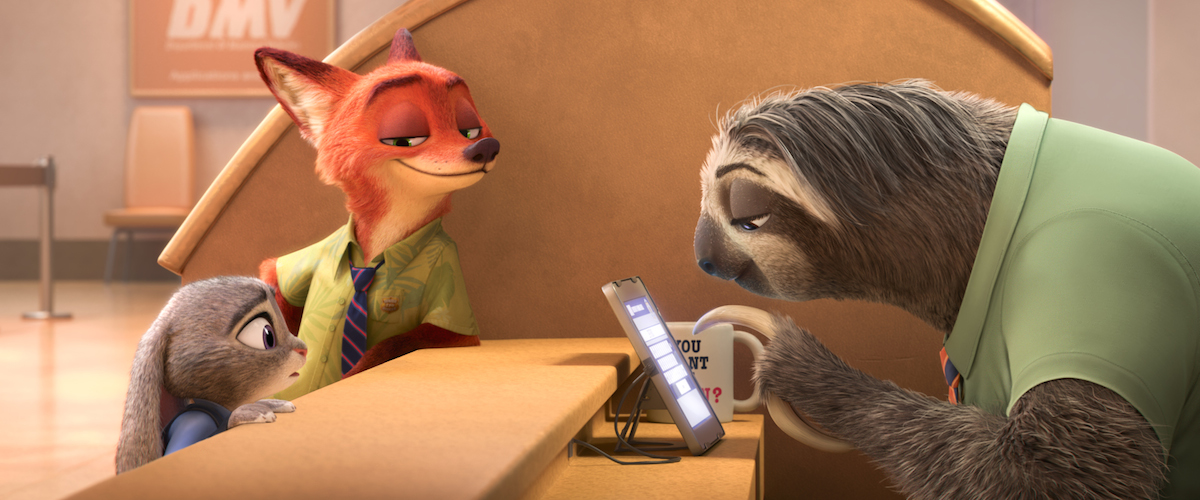
At the ZPD, Judy faces skepticism from her boss, Chief Bogo (voiced by Idris Elba), and is relegated to parking duty, far from the heroic work she envisioned. Her struggles underscore the film’s exploration of prejudice, as Judy’s ambitions are often dismissed because of her species. However, her chance encounter with a sly fox named Nick Wilde, voiced by Jason Bateman, propels her into a thrilling investigation. Nick, a clever con artist who has long been stereotyped as “sly” and “untrustworthy,” quickly becomes Judy’s unlikely ally as they attempt to solve a mystery involving missing predators throughout the city.
The dynamic between Judy and Nick is one of the film’s most compelling aspects. Despite their differences, they share a deep understanding of the pain that comes from being judged solely by appearance. Nick, who has endured a lifetime of discrimination and rejection, is initially cynical and distrustful of others. His character arc, however, reveals a complex personality shaped by past trauma, particularly an incident from his youth where he was humiliated and labeled as a “dangerous predator.” Judy’s friendship and trust help Nick confront his past, leading him to reevaluate his self-worth and place in society.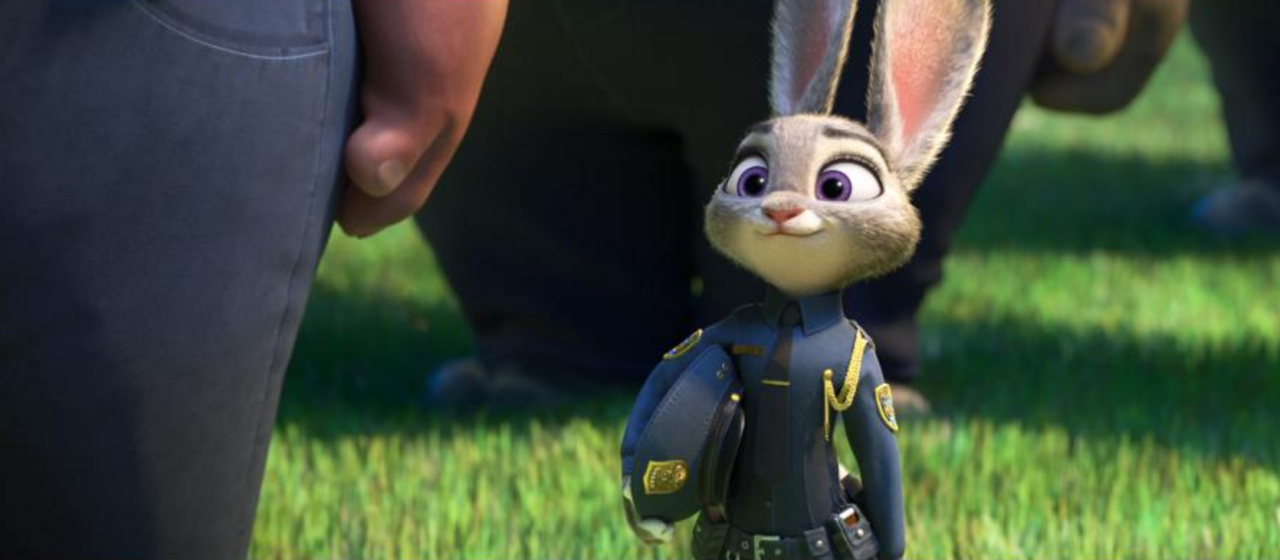
The film’s central mystery unfolds as Judy and Nick uncover a conspiracy involving a toxic plant that turns predators into uncontrollable “savage” versions of themselves. Their investigation leads them to powerful figures in Zootopia, revealing a sinister plot to use fear and division for political gain. This storyline serves as a metaphor for prejudice and systemic discrimination, as certain characters attempt to manipulate the public’s fear of predators for their own benefit. Judy and Nick’s journey to expose the truth forces them to confront their own biases and assumptions, ultimately challenging them to see each other and themselves in a new light.
Zootopia is visually stunning, with its richly detailed setting that brings to life the idea of a modern city inhabited by animals of all shapes and sizes. The city is divided into distinct districts, each designed to accommodate different species, from the chilly Tundratown to the lush Rainforest District. This world-building is a testament to Disney’s creativity, capturing the diversity of animal life in a setting that is both fantastical and surprisingly relatable. The attention to detail in character animation and design adds to the immersion, making each species’ unique traits an integral part of the story.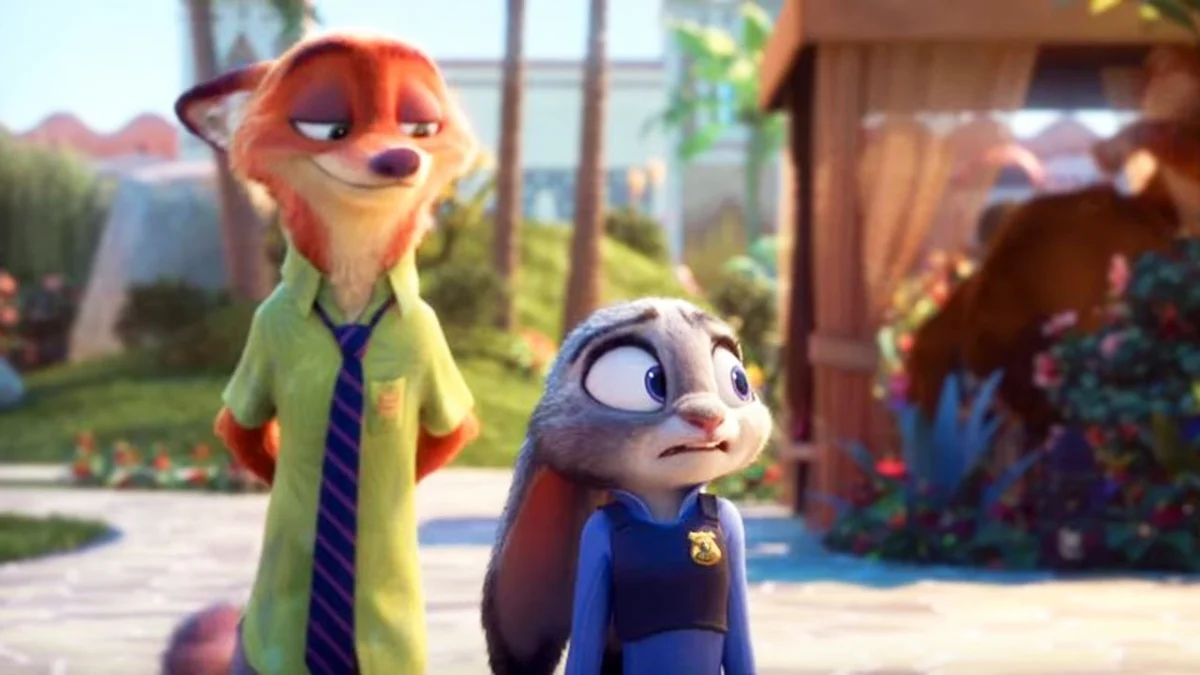
The film also uses humor and clever references to enhance its message. Memorable scenes, like the DMV run by sloths and a parody of The Godfather featuring a shrew crime boss, provide lighthearted moments that balance the film’s heavier themes. This blend of comedy and social commentary makes Zootopia engaging and thought-provoking, encouraging audiences to reflect on their own assumptions and biases without feeling overly moralized.
One of Zootopia’s most poignant moments comes when Judy, in an attempt to explain the “savage” incidents, inadvertently reinforces harmful stereotypes about predators. Her comments strain her relationship with Nick, who realizes that despite their friendship, Judy has her own prejudices to confront. This scene underscores the complexity of the film’s message: prejudice is not always overt or intentional, and even well-meaning individuals can perpetuate harmful beliefs. Judy’s subsequent apology and commitment to change highlight the importance of self-awareness and personal growth, reinforcing the film’s theme of empathy and understanding.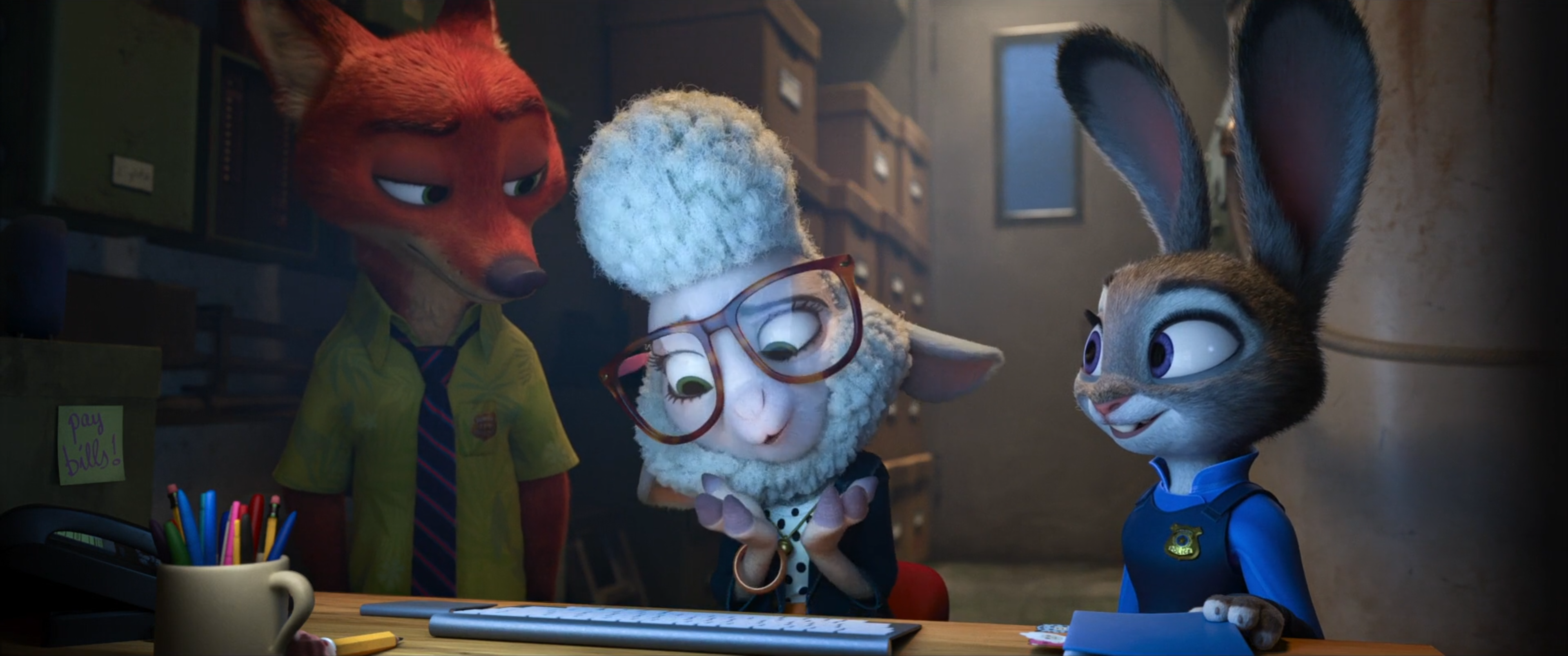
The soundtrack, featuring Shakira’s upbeat song “Try Everything,” reflects Judy’s resilience and determination to make a difference. The song’s message of perseverance and optimism encapsulates the spirit of Zootopia, encouraging audiences to keep striving toward positive change, even in the face of setbacks. Shakira’s character, a pop star gazelle named Gazelle, becomes a symbol of unity within Zootopia, urging the public to embrace diversity and reject division.
Ultimately, Zootopia is more than an animated adventure; it’s a sophisticated exploration of complex social issues that affect all communities. By addressing topics like discrimination, stereotypes, and the struggle for equality, the film resonates with viewers on multiple levels, offering a hopeful message that individuals can grow, change, and make a difference. Through its endearing characters, inventive setting, and meaningful narrative, Zootopia encourages audiences to look beyond appearances, challenge their own assumptions, and strive for a more inclusive society. Its success as both an entertaining and thought-provoking film has earned it a place as a modern classic, reminding us all of the power of empathy and acceptance in building a better world.











